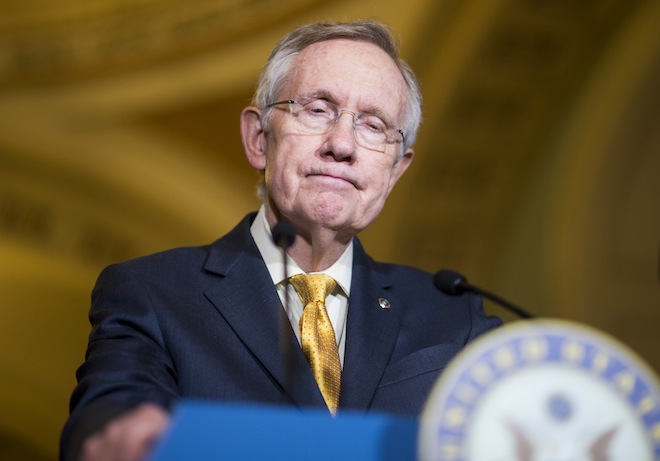The big news today is that Harry Reid and Mitch McConnell have agreed to a very modest set of Senate rules reforms (I can’t call them filibuster reforms, because they don’t reform the modern filibuster at all). It should come as no surprise to anyone who’s been following the story for the past few weeks. When the majority’s big stick is threatening to use the nuclear option to impose very modest reforms because the party can’t reach internal consensus on anything meaningful — well, it mean things aren’t going very well.
But the filibuster remains a huge impediment to the majority doing what it wants to do, and thus distorts the public’s sense of who’s at fault for governing failures. It’s been a huge, and historically unprecedented problem for Democrats for four years. So why didn’t they take unilateral action for stronger reforms?
I’m sure some Democrats were genuinely fearful of the long-term consequences of going nuclear. But it’s important to keep in mind that the incentives of an individual senator are often much different than the incentives of his or her party, or his or her institution. Weakening the filibuster would make the Senate a more democratic institution, and give Democrats more power — and that’s precisely why filibuster reform is so problematic for individual senators. Even senators in the majority. If you enjoy using the threat of killing legislation to lock in goodies for your state or paymasters, then you probably don’t support any effort that will limit or eliminate your power to impose a supermajority requirement.
The other side of that coin is that a supermajority requirement often allows senators to “support” legislation they’re actually happy to see fail. If, say, breaking up big banks is important to your constituents but abhorrent to your party or your donors, then being the 58th vote for a bill to break up big banks is actually hitting the sweet spot.
The same dynamic will hold if and when Republicans take control of the Senate. Which is a decent reason to suspect that they won’t nuke the filibuster either; and ultimately why Republicans were eying the budget reconciliation process — and not filibuster reform — as their vehicle for passing the Romney agenda had they taken control of government this year.






